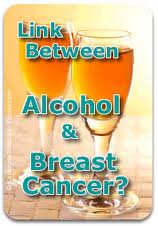 Menopausal hormone therapy doesn't have to follow "the lowest dose for the shortest time" strategy for all women anymore, the North American Menopause Society said today. The group endorsed a flexible approach to duration that takes into account the type and timing of therapy and individual patient characteristics in a statement in its journal, Menopause.
Menopausal hormone therapy doesn't have to follow "the lowest dose for the shortest time" strategy for all women anymore, the North American Menopause Society said today. The group endorsed a flexible approach to duration that takes into account the type and timing of therapy and individual patient characteristics in a statement in its journal, Menopause.
For women in their 50s, the absolute risks are low; younger women without a history of breast cancer can use replacement hormones at least until the normal menopause age around 51, and longer if needed for symptom management, according to the guidelines.
"No 'one size fits all' approach is acceptable anymore," JoAnn E. Manson, MD, DrPH, NCMP, of Harvard, and president of the society, said in answer to a query from ABC News and MedPage Today.
Manson's position is somewhat surprising since she was a principal investigator for the Women's Health Initiative, the landmark randomized trial that derailed the hormone therapy movement when it reported a link between Premarin (estrogen/progestin) and increased risk of breast cancer and thromboembolic conditions.
The new guidelines loosen up on timing, agreed Michelle P. Warren, MD, NCMP, of Columbia Presbyterian Medical Center in New York City, who was also involved with the guidelines. Women who need hormone therapy can use it for as long as needed, she said in an interview. That shift should be reassuring for many women, Manson suggested.
When the Women's Health Initiative studies indicated elevated breast cancer and heart disease risk with hormone therapy in its postmenopausal population a decade ago, prescriptions dropped precipitously across the country. Recommendations followed suit, urging cautious, sparing use of the drugs.
Fear of prescribing to women with any suggestion of heart disease, even the common symptom of palpitations, led to "a whole generation of women who were really suffering," Warren noted.
Now with longer-term follow-up available from that and other studies, perspectives are changing, explained Manson, who serves as an investigator with the ongoing Nurses' Health Study, an observational study that was once used to bolster use of hormone therapy. Last summer, the Endocrine Society also called for rethinking the established line on menopausal hormone therapy, stating that risks and benefits vary by age and time since menopause.
The menopause society's consensus group concluded that the estrogen-only (ET) formulations (typically used for women without a uterus) can be used for seven years without increasing risk of breast cancer, while combination estrogen-progestin therapy (EPT) increases that risk after three to five years of use.
The recommendation for duration of therapy differs for EPT and ET. For EPT, duration is limited by the increased risk of breast cancer and breast cancer mortality associated with three to five years of use; for ET, a more favorable benefit/risk profile was observed during a mean of seven years of use and four years of follow-up, a finding that allows more flexibility in duration of use.
The Women's Health Initiative and Nurses' Health Study both pointed to a possible reduced risk if use didn't start immediately after menopause. However, the evidence for this "gap theory" (also called the critical window hypothesis) isn't very solid and menopausal symptoms are usually worse in the first two to five years, Warren said in an email to ABC News/MedPage Today.
 The bigger clinical impact from the guidelines is likely to come from its conclusions on cardio- and cerebrovascular risks, she suggested. With estrogen alone, women in their 50s in the Women's Health Initiative actually had a reduced risk of combined endpoints including coronary heart disease and total myocardial infarction.
The bigger clinical impact from the guidelines is likely to come from its conclusions on cardio- and cerebrovascular risks, she suggested. With estrogen alone, women in their 50s in the Women's Health Initiative actually had a reduced risk of combined endpoints including coronary heart disease and total myocardial infarction.
With combined estrogen and progestin, that trial showed an absolute increase in heart disease by an estimated eight cases per 10,000 women per year, whereas observational studies had found a longer duration of use associated with a reduced risk.
The potentially reduced coronary heart disease risk among women who used hormone therapy for five or more years was "not conclusive and should be considered in light of other factors altered by duration of therapy, such as breast cancer," the statement warned.
There was a clear differentiation in risk by timing of hormone therapy after menopause, though, in the opposite direction than for breast cancer risk. Both unopposed estrogen and estrogen with progestin were associated with elevated coronary heart disease risk when therapy started more than 10 years after menopause.
For stroke, hormone therapy had appeared to raise risk overall, with eight additional strokes per 10,000 women per year of combined hormone therapy and 11 extra with estrogen only. But recent analyses of the two together found no significant stroke risk for women ages 50 to 59 at initiation, the statement noted.
"They have essentially rescinded the position concerning the heart data as long as you start within 10 years of menopause commencing," Warren summarized.
However, Marcia Stefanick, MD, of Stanford University, who had been involved with the Women's Health Initiative steering committee, took issue with that conclusion, calling it misleading.The analysis actually showed no interaction with age for stroke risk, which means all age groups are at elevated risk, she told ABC News/MedPage Today.Another problem was that the women on unopposed estrogen in the Women's Health Initiative only used the drug for an average of 3.5 years because so many discontinued.
"I don't think we have data suggesting that you can go beyond three to five years," she said. "It is misleading to say [estrogen is safe for] seven or more years."
The NAMS statement urged clinicians to consider a number of additional factors when considering hormone therapy for patients:
- A woman's individual risk and history of venous thrombosis, heart disease, stroke, and breast cancer
- Route of administration and dosing, as transdermal and low-dose oral estrogen are associated with lower venous thromboembolism and stroke risks than standard oral estrogen doses
- Type of symptoms, with low-dose, local administration of estrogen when only vaginal symptoms are present
Further research is still needed, especially in interpreting individual risk and assessing long-term implications, the statement noted.
By Crystal Phend, Senior Staff Writer, MedPage Today
Primary source: Menopause: The Journal of The North American Menopause Society
Source reference:
"The 2012 hormone therapy position statement of the North American Menopause Society" Menopause 2012; 19: 257-271.
 The average age of menopause in the United States is around 51 years old, but the onset can widely vary. Premature menopause refers to menopause of onset at or before 40 years of age. This can occur because of a variety of causes, including surgery (i.e. bilateral oophorectomy, removal of ovaries), chemotherapy or pelvic radiation treatments for cancer, chromosomal or genetic defects, and spontaneous premature ovarian failure.
The average age of menopause in the United States is around 51 years old, but the onset can widely vary. Premature menopause refers to menopause of onset at or before 40 years of age. This can occur because of a variety of causes, including surgery (i.e. bilateral oophorectomy, removal of ovaries), chemotherapy or pelvic radiation treatments for cancer, chromosomal or genetic defects, and spontaneous premature ovarian failure.
 New long-term research shows that hot flashes continue, on average, for five years after menopause. More than a third of women can experience hot flashes for up to ten or more years after menopause.
New long-term research shows that hot flashes continue, on average, for five years after menopause. More than a third of women can experience hot flashes for up to ten or more years after menopause. Do hormone levels in postmenopausal women affect cognitive function? New research sheds light on the postmenopausal brain.
Do hormone levels in postmenopausal women affect cognitive function? New research sheds light on the postmenopausal brain. Hot flashes: most menopausal women have them, and all menopausal women hate them. For one in ten women, hot flashes occur for five years or longer, signicantly affecting multiple aspects of their lives including relationships and sleep. While hormone replacement therapy has largely addressed the issue of hot flashes in many women, other women have sough alternatives. Alternatives including yoga, acupuncture, exercise, and applied relaxation have all been helpful in women undergoing menopause.
Hot flashes: most menopausal women have them, and all menopausal women hate them. For one in ten women, hot flashes occur for five years or longer, signicantly affecting multiple aspects of their lives including relationships and sleep. While hormone replacement therapy has largely addressed the issue of hot flashes in many women, other women have sough alternatives. Alternatives including yoga, acupuncture, exercise, and applied relaxation have all been helpful in women undergoing menopause. Hormone therapy can be used to ease the many symptoms of menopause, including night sweats, hot flashes, and mood swings. New research indicates that hormone therapy, specifically estrogen, can also be used towards joint pain.
Hormone therapy can be used to ease the many symptoms of menopause, including night sweats, hot flashes, and mood swings. New research indicates that hormone therapy, specifically estrogen, can also be used towards joint pain.
 An analysis among more than 40,000 postmenopausal women who were in the California Teachers Study was carried out to determine if there were differences in risk of breast cancer among women consuming alcohol according to their previous or current use of hormone therapy (HT). In the cohort, 660 women were diagnosed with invasive breast cancer during follow up.
An analysis among more than 40,000 postmenopausal women who were in the California Teachers Study was carried out to determine if there were differences in risk of breast cancer among women consuming alcohol according to their previous or current use of hormone therapy (HT). In the cohort, 660 women were diagnosed with invasive breast cancer during follow up. Menopausal hormone therapy doesn't have to follow "the lowest dose for the shortest time" strategy for all women anymore, the North American Menopause Society said today. The group endorsed a flexible approach to duration that takes into account the type and timing of therapy and individual patient characteristics in a statement in its journal, Menopause.
Menopausal hormone therapy doesn't have to follow "the lowest dose for the shortest time" strategy for all women anymore, the North American Menopause Society said today. The group endorsed a flexible approach to duration that takes into account the type and timing of therapy and individual patient characteristics in a statement in its journal, Menopause. The bigger clinical impact from the guidelines is likely to come from its conclusions on cardio- and cerebrovascular risks, she suggested. With estrogen alone, women in their 50s in the Women's Health Initiative actually had a reduced risk of combined endpoints including coronary heart disease and total myocardial infarction.
The bigger clinical impact from the guidelines is likely to come from its conclusions on cardio- and cerebrovascular risks, she suggested. With estrogen alone, women in their 50s in the Women's Health Initiative actually had a reduced risk of combined endpoints including coronary heart disease and total myocardial infarction. Women, on average, live one-third of their lives post menopause. Some women find menopause an easy transition. Other women are chronically bothered by persistent hot flashes and night sweats that impact their quality of life. For years, hormone therapy was the answer but it has been shadowed by controversy as researchers learn more about estrogen and its long term impact on the body. The
Women, on average, live one-third of their lives post menopause. Some women find menopause an easy transition. Other women are chronically bothered by persistent hot flashes and night sweats that impact their quality of life. For years, hormone therapy was the answer but it has been shadowed by controversy as researchers learn more about estrogen and its long term impact on the body. The  Starting Hormone Therapy at Menopause Increases Breast Cancer Risk
Starting Hormone Therapy at Menopause Increases Breast Cancer Risk